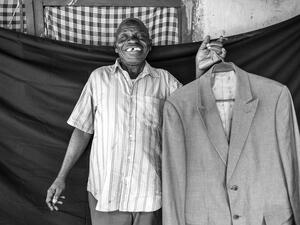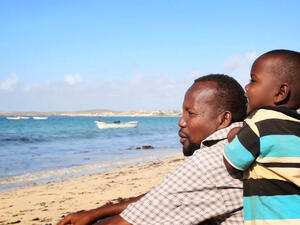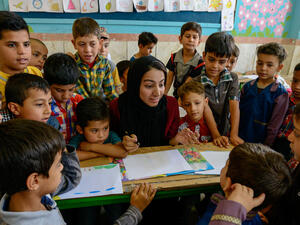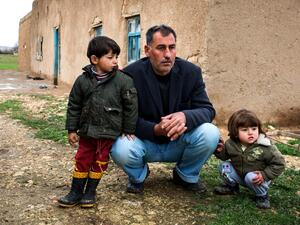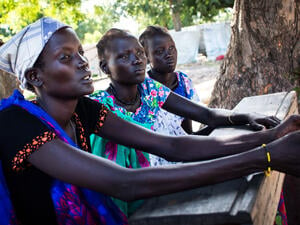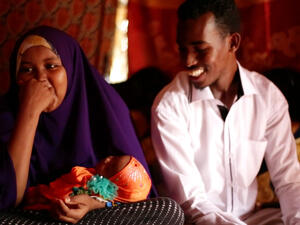Millions of Africa's refugees could go home soon, says UNHCR official
Millions of Africa's refugees could go home soon, says UNHCR official
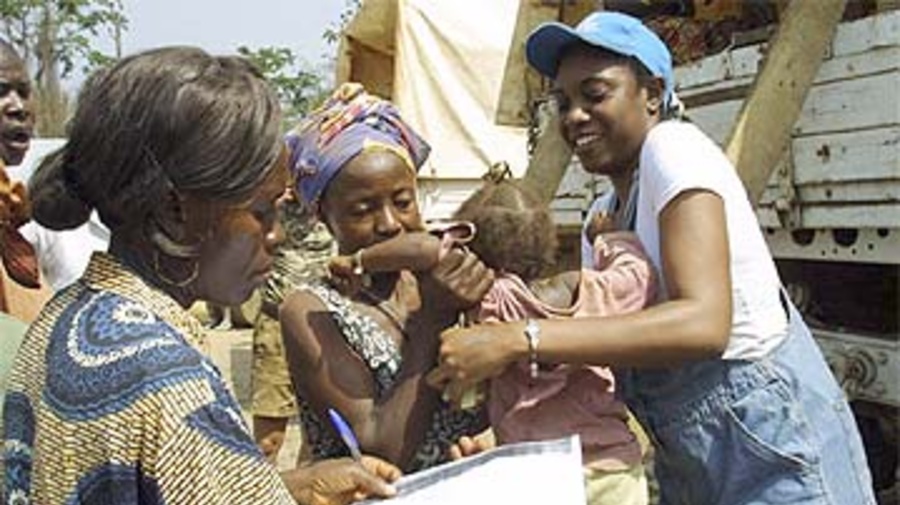
Liberian refugees, like these in Sierra Leone's Largo camp, may choose to go home after more UN peacekeepers are deployed in Liberia.
GENEVA, Feb 27 (UNHCR) - Millions of Africans uprooted by war are in sight of the day when they can return to their countries, UNHCR's head of operations in Africa told a press conference at the agency's Geneva headquarters today.
Speaking to the media at the Palais des Nations, Africa Bureau Director for UNHCR David Lambo said that thanks to ongoing peace efforts in various regions of Africa, there are potentially more than 2 million refugees who may want to return home over the next three to five years.
Noting that the world is seeing "a new dawn in Africa", Lambo said that several conflicts on the continent had recently ended while in other regions, parties were now seriously sitting around the negotiating table.
He stressed that for the first time in many years, millions of refugees may have the chance to return to their countries, where they would join millions more of their countrymen internally displaced by war who are also starting to go back to their communities.
UNHCR is planning a ministerial conference, the Dialogue on Voluntary Repatriation and Sustainable Reintegration in Africa, to be held in the Palais des Nations on March 8.
Lambo said the meeting will bring together key African ministers, donor governments and other partners to discuss peace processes that will, over the next few years, present unprecedented opportunities to find solutions for Africa's protracted refugee problems.
The upcoming meeting will be opened by the UN High Commissioner for Refugees, Ruud Lubbers. Joining the 14 ministers who Lambo said have so far agreed to attend the meeting will be keynote speakers Poul Nielson, European Commissioner for Development and Humanitarian Aid; Julia D. Joiner, Commissioner for Political Affairs, Commission of the African Union; and Julia Taft, Assistant Administrator of the UN Development Programme.
"The March 8 meeting will raise the awareness of the international community and help them to understand the potential for return," Lambo said. "We're trying to spread the message that donors must help the peace processes now underway on the continent to be sustainable."
"One of the major problems is to break the cycle of repatriation and then of despair," Lambo said of situations where refugees finally make the step to return to their countries, but then lack the economic and social support necessary to become self-sufficient.
The refugee agency's intention behind the upcoming conference is to spotlight countries where Lambo said UNHCR is "cautiously optimistic" about the direction of the peace process and consolidation efforts. The agency has noted that Angola, Burundi, the Democratic Republic of the Congo, Eritrea, Liberia, Rwanda, Sierra Leone, Somalia and Sudan all fall into the list of states already welcoming back or on the verge of seeing exiles return from neighbouring states.
Lambo said the agency believes that the international community needs to seize this opportunity and take a comprehensive regional approach to ensure repatriation and sustainable reintegration in Africa.
"It is very important that we make this effort sustainable and that we really do break the cycle of violence," Lambo declared. "We can demobilise combatants and help people home, but it is an entirely different matter to rehabilitate and rebuild a country."
As such, UNHCR sees the March 8 meeting as an opportunity to bring senior government officials from nearly 40 African countries into contact with key donor states and humanitarian and development actors. This will give them a chance to begin outlining a coordinated repatriation and rehabilitation effort in their states to ensure that returning refugees and displaced persons can be absorbed by communities that are themselves recovering from years of neglect.
In an encouraging sign, UNHCR has received the first contributions to what could be its biggest repatriation operation in the near future - Sudan. The United States has donated $2.7 million while Canada contributed $380,000 in response to the agency's November 2003 appeal for $8.8 million to fund preparatory activities for the return of Sudanese refugees.



